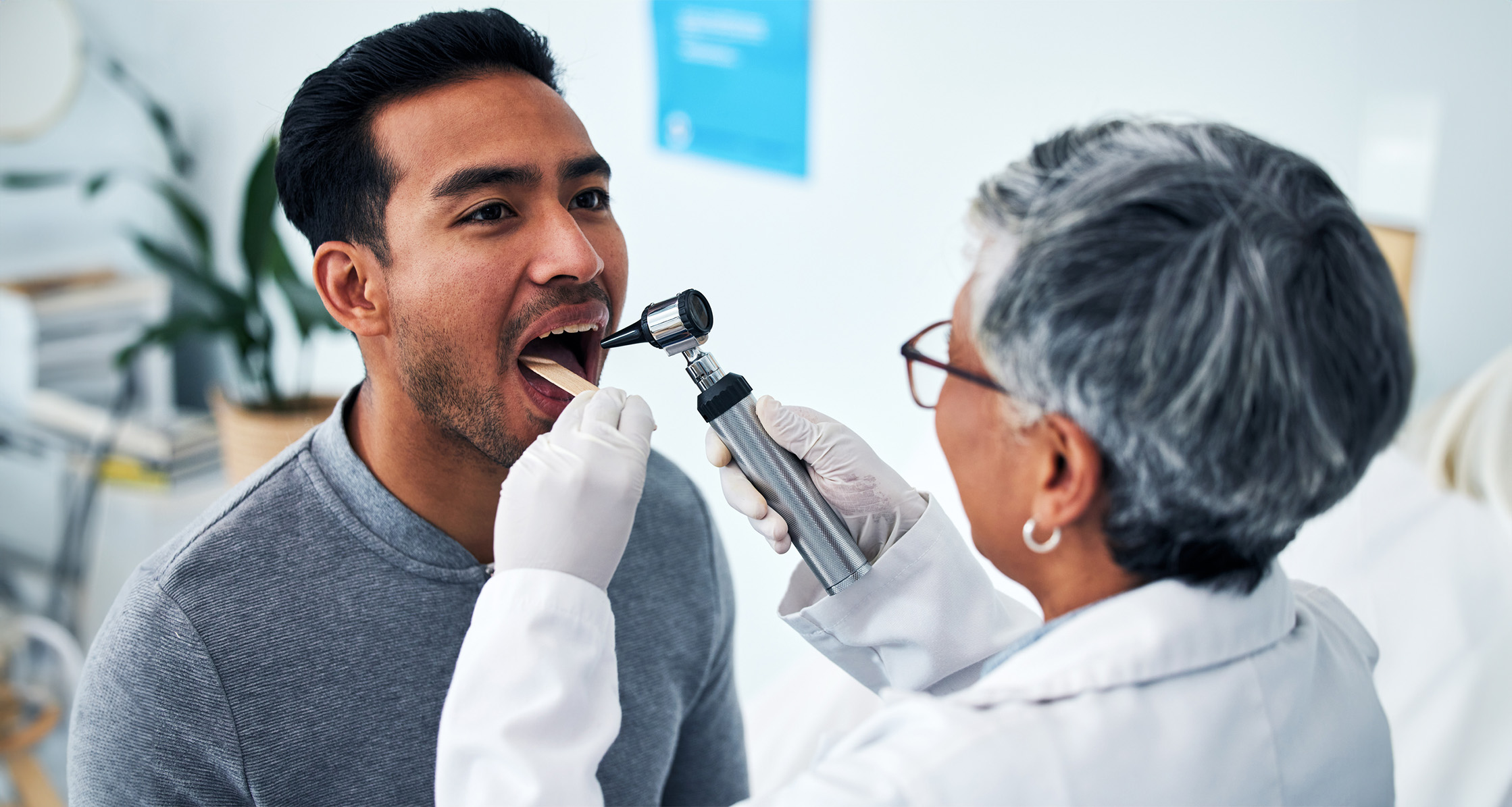Early detection is key to the successful treatment of oral cancer.
According to the Department of Veterans Affairs (VA), oral cancer kills more than 9,750 people each year in the United States, and Veterans are three times more likely to develop oral cancer than the general population.
Early detection is key to the successful treatment of oral cancer, so it’s important to educate yourself about oral cancer, its causes and symptoms, as well as what steps we can all take to protect ourselves.
What Is Oral Cancer?
Oral cancer includes cancers of the mouth and the back of the throat. Most oral cancers begin in the flat cells that cover the surfaces of your mouth, tongue and lips, but the cancer cells may spread into deeper tissue as the cancer grows.
What Causes Oral Cancer?
Traditionally, the majority of oral cancer cases were caused by heavy alcohol use and tobacco smoking. However, the human papillomavirus (HPV) is now thought to cause between 60% and 70% of oral cancers in the United States. Many of these cases may be caused by a combination of tobacco, alcohol and HPV.
What Are the Symptoms?
Some people who develop oral cancer may not have any symptoms, but there are some common symptoms related to oral cancer including:
- Long-lasting sore throat
- Earaches (usually on one side only)
- Swollen lymph nodes
- Pain or difficulty when swallowing
- A sore or a lump that doesn’t heal
- Red or white patches in your mouth
- A lump or a hard spot in your neck
- Swelling of your jaw
- Bleeding, pain or numbness in your lip or mouth
- Loose teeth or dentures that no longer fit well
- Trouble moving your mouth or jaw
If you have any of these symptoms for more than two weeks, talk to your health care provider or your dentist right away. Early detection is key to preventing serious consequences and death from oral cancer.
Who Is At Risk?
Anyone can develop oral cancer, but there are certain factors that can increase your risk of developing it, including:
- Tobacco use – This includes using tobacco of any kind, including cigarettes, pipes, cigars, electronic cigarettes, as well as chewing tobacco and snuff.
- Alcohol use – Heavy alcohol use can increase your risk of oral cancer, and using tobacco and alcohol together increases your risk even more.
- HPV infections – HPV is the most common sexually transmitted infection and can be transmitted to the mouth through oral sex.
- Age – Oral cancer risk increases with age, most often occurring in people over the age of 40.
- Sex – Oral cancer affects twice as many men as women.
- Sun exposure – Frequent sun exposure can increase your risk of lip cancer.
What Steps Can I Take to Prevent Oral Cancer?
- Get regular checkups. Scheduling regular checkups (twice a year) with your dentist promotes good dental hygiene and gives your dentist a chance to detect any early signs of cancer. An oral cancer exam is quick and painless and can be done during your regular dental checkup.
- Brush and floss regularly. A clean healthy mouth decreases your chances for many oral health issues.
- Consider the HPV vaccine. The CDC recommends the HPV vaccine for 11- and 12-year-olds or anyone through age 26 who has not received it. Some adults ages 27-45 who are not already vaccinated may decide to get it after speaking to a health care provider about their risk of developing HPV.
- Reduce your risky behaviors. Limit the amount of alcohol you drink and avoid using tobacco products.
What Treatments Are Available?
Your oral cancer treatment will depend on several factors, such as your overall health, where the cancer began, when it was detected and more. Using this information, your health care team may recommend different treatment options, including:
- Surgery
- Radiation therapy
- Chemotherapy
- Targeted therapy
- Immunotherapy
In addition to these standard treatments, VA has developed a new treatment option, a gummy lozenge, which has shown promising results in clinical trials. Read this VA news story about APG-157, a non-toxic drug derived from turmeric, and the benefits one Veteran experienced after taking it.
In addition, VA is studying the use of artificial intelligence to help select treatment type and intensity for Veterans suffering from oral cancer. The goal of this research is to improve treatment effectiveness, survival and quality of life for patients.
If you think your oral cancer diagnosis may be related to your service, check out VA’s expanded list for presumptive conditions related to burn pit exposure. Certain oral cancers are considered “presumptive,” meaning VA assumes your service caused your condition. Review the most common types of cancer and whether or not you may be eligible for disability compensation or VA health care.
Oral cancer rates among Veterans continue to rise. Cut down on risky behaviors, address any symptoms you have with your health care provider, and schedule your yearly dental appointments – your oral health depends on it!







